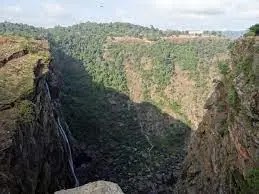Economic geology: Focuses on the study of Karnataka
Certainly! Karnataka is a state located in the southern part of India and is known for its diverse economic geology.
Economic geology focuses on the study of Earth's materials and how they can be utilized for economic purposes.
In the case of Karnataka, the state's geology has played a significant role in shaping its economy and contributing to its development.
Minerals and Mining: Karnataka is rich in mineral resources, making mining a crucial economic activity. Some of the important minerals found in the state include iron ore, manganese, limestone, gold, bauxite, and chromite. The Bellary-Hospet region, in particular, is known for its extensive iron ore deposits, which have contributed to India's steel industry. However, it's worth mentioning that there have been concerns about sustainable mining practices and their impact on the environment in the region.
Iron Ore Industry: The iron ore mining industry has historically been a major contributor to Karnataka's economy. It has supported steel production, both within the state and in other parts of India. The iron ore exports from Karnataka have also contributed to foreign exchange earnings for the country. However, regulatory changes and environmental concerns have led to fluctuations in the industry's growth.
Agriculture and Minerals: Karnataka's economy isn't solely dependent on mineral resources. The state is agriculturally rich, producing a variety of crops such as rice, sugarcane, coffee, and silk. The availability of minerals like limestone has also supported the cement and construction industries, which are essential for infrastructure development.
Jewelry and Gemstones: Karnataka is also known for its rich tradition of jewelry-making and gemstone cutting. The city of Bengaluru is a hub for processing and trading of diamonds, gold, and other precious stones. This sector contributes significantly to the state's economy by generating employment and revenue.
Hydropower Potential: The state's geography, with its numerous rivers and hilly terrain, provides a significant potential for hydropower generation. Hydroelectric power projects have been developed in various parts of Karnataka, contributing to its energy requirements and reducing dependency on fossil fuels.
Challenges and Sustainability: While economic geology has brought economic growth to Karnataka, it's important to address the environmental and social challenges associated with resource extraction. Over-exploitation of minerals can lead to environmental degradation, loss of biodiversity, and disruption of local communities. Balancing economic development with sustainable practices is crucial for the long-term well-being of the state.
Karnataka's economic geology is a fascinating blend of mineral resources, agriculture, energy potential, and craftsmanship. The state's abundant natural resources have played a pivotal role in shaping its economy, and a balanced approach to resource management is vital for ensuring a prosperous and sustainable future. Google Search Engine
Know Earths Biggest Volcanic Events
Visit Official Home Page






0 Comments